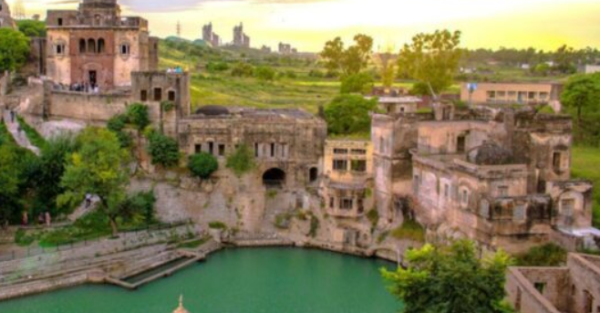
Lord Shiva is not limited to India only, his devotion, stories and temples of the temples leave his mark in other countries across the border of India. One such unique and emotional thing is Katraj Shiva Temple, which is not in India but in Punjab province of Pakistan. As historical as the place of this temple is, the spirituality and compassion connected to it is the heart of the heart.
This ancient temple, located in Chakwal district of Pakistan, is specially known for the wells created by the tears of Lord Shiva. Katas Kund is the name of this sacred reservoir, and the story tells that when the goddess Satti committed suicide, tears began to flow through the eyes of Lord Shiva, who was in grief. With the same tears, this lake was built. Even today, this well reminds God’s misery in the quiet area there and introves the devotees.
After the partition, the relations between India and Pakistan were strained and the devotees of this temple were also reduced. But even today, the Katrajara temple is a holy and homage to the Hindus in Pakistan. Often, even from India, devotees get visas to go to Katjaraj Temple. The Pakistani High Commission for special support for this. This temple is now not only a religious place, but has become an emotional bridge of cultural heritage between the two countries.
It is also said about this temple that the Pandavas lived here for some time during the forest. Therefore, the reference to this place is not only linked to mythology but also with the elements of the Mahabharata. Not only that, Adi Shankaracharya has come here and propagates philosophy and the Vedas. Therefore, this place was once considered the center of education and spiritual contemplation of Hinduism.
The original story of the name Katraj is also very heartbreaking. Some say that when Shiva was ridiculed by the vigilant, he did not suffer from humiliation, at that time, the Shiva filled with anger and mourning expressed his bitterness. From the same ‘bitterness’, the name Katas was created, which went ahead and became Katraj.